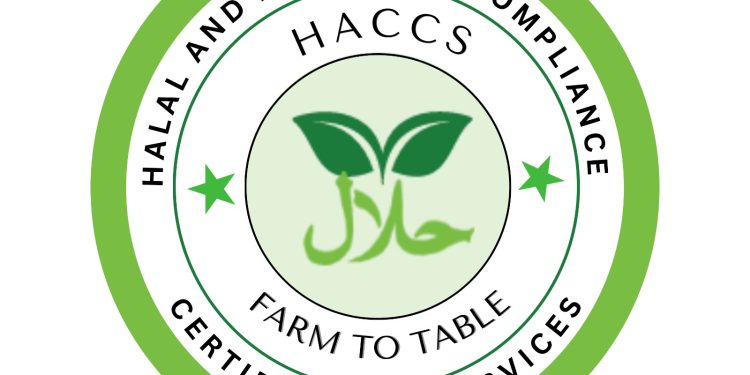In a strategic move to position Nigeria as a formidable player in the multi-trillion-dollar global Halal industry, Halal and Agrofood Compliance Certification Services (HACCS) is set to commence a rigorous six-month Halal Auditor Training Programme. The initiative, which kicks off virtually on Saturday, May 10, aims to build a new cadre of highly skilled Halal compliance professionals who will play a crucial role in elevating Nigeria’s competitiveness in international Halal markets.
The training programme, described by stakeholders as both timely and transformative, will run on a virtual platform with sessions scheduled once a month over a six-month period. A total of 70 participants, selected from across Nigeria and abroad, have been shortlisted to take part in the intensive course. The sessions are slated to begin at 9:00 a.m. Nigerian time and are expected to uphold global standards of Halal Assurance Systems (HAS) and Good Manufacturing Practices (GMP).
The selected trainees include professionals with backgrounds in food science, meat science, food microbiology, and Islamic studies. Many among them hold thanawiyyah certificates and possess a strong foundation in Islamic jurisprudence, particularly in the domain of fiqh al-halal wal-haram—essential for interpreting and enforcing ethical guidelines in Halal production.
Dr. Taofeek Muhammad Thanni, Head of Islamic Ethical Compliance at HACCS, underscored the urgency of developing local expertise. According to him, “The absence of adequately trained auditors weakens enforcement and undermines trust in Halal-certified products. If Nigeria is serious about competing in this space, we must build and sustain our internal auditing capabilities.”
Globally, the Halal economy spans sectors including food, cosmetics, pharmaceuticals, tourism, and Islamic finance. Valued at over $2.3 trillion, with food products alone accounting for an estimated $1.4 trillion, the industry continues to grow rapidly. Nations like Brazil, Thailand, China, and Australia have already institutionalized national Halal strategies to penetrate Muslim-majority markets, and Nigeria is now taking critical steps to follow suit.
The HACCS training will equip participants with the skills to conduct comprehensive facility inspections, assess hygiene standards, monitor staff training protocols, prevent cross-contamination, evaluate ingredient traceability, and review Halal-related documentation. These tasks will all be guided by the principles of Islamic ethics and global best practices.
Beyond the training itself, HACCS is calling for more robust support from the Nigerian government to foster a thriving Halal ecosystem. According to experts, enacting enabling legislation, improving infrastructure, forging international partnerships, and strengthening Halal governance structures are vital to unlocking the sector’s full economic potential. Such measures, they say, could significantly boost Nigeria’s non-oil exports, increase bilateral trade with Muslim-majority countries, and enhance confidence in Nigerian Halal products on the global stage.
As Nigeria prepares to enter this next phase in its Halal journey, HACCS reaffirms its commitment to ensuring ethical integrity, food safety, and compliance with international standards. Dr. Thanni emphasized, “Nigeria must act now or risk being left behind in an industry that is both lucrative and increasingly competitive.”
Stakeholders, professionals, and institutions are encouraged to support the initiative and collaborate toward building a sustainable and credible Halal certification infrastructure. For further inquiries or to get involved, HACCS can be reached via email at [email protected].

